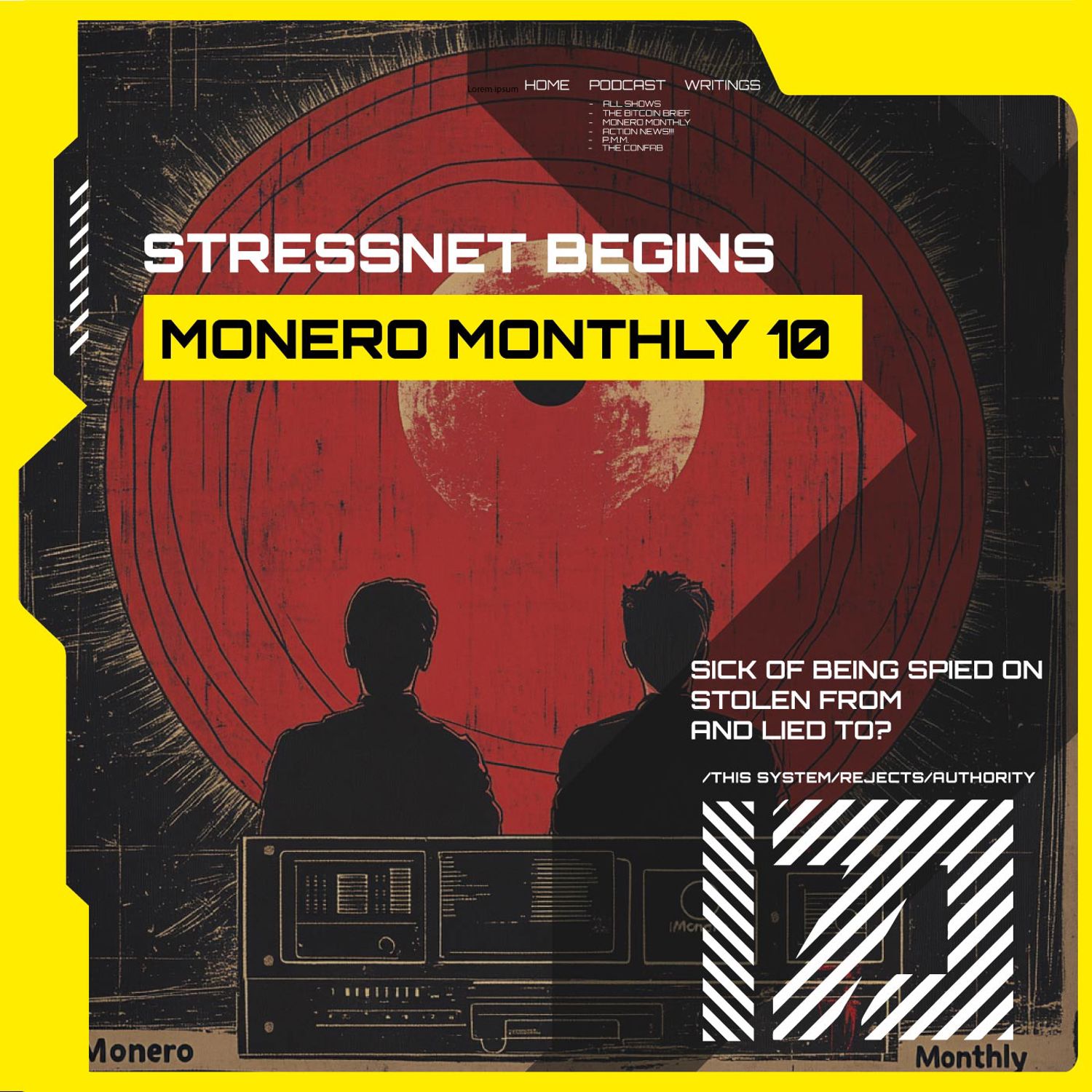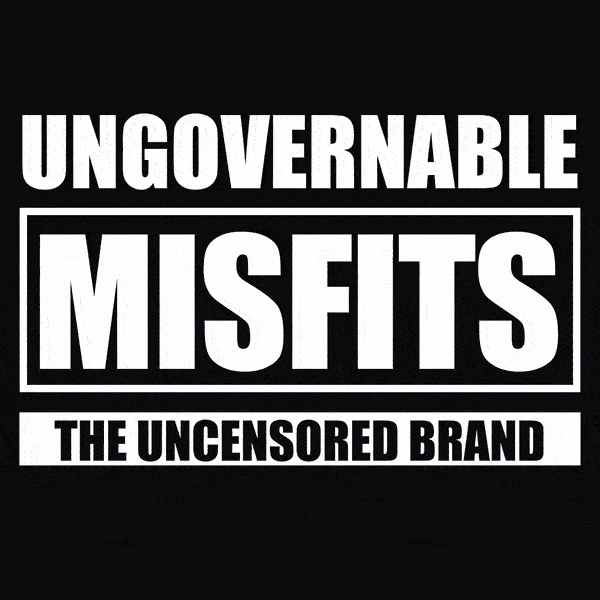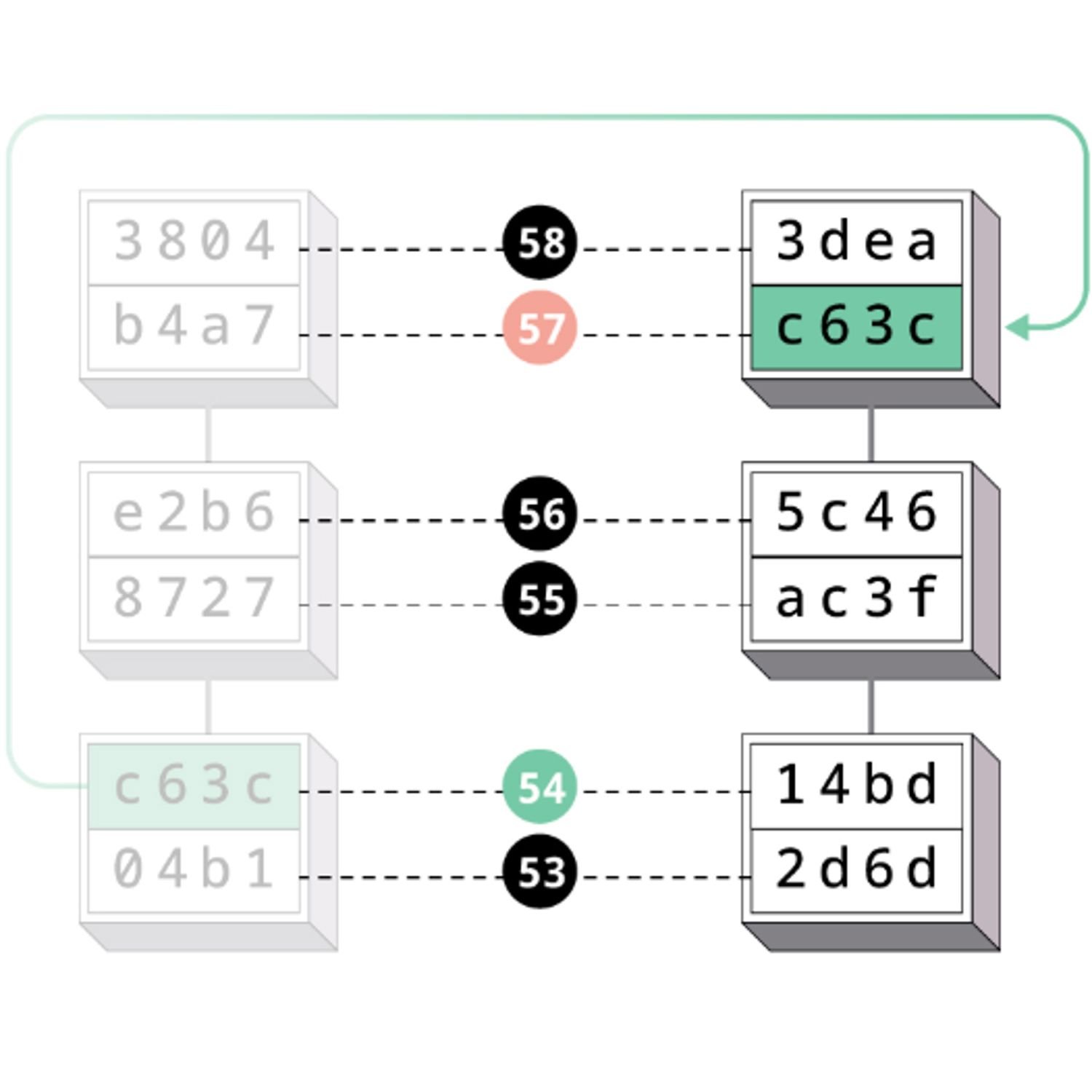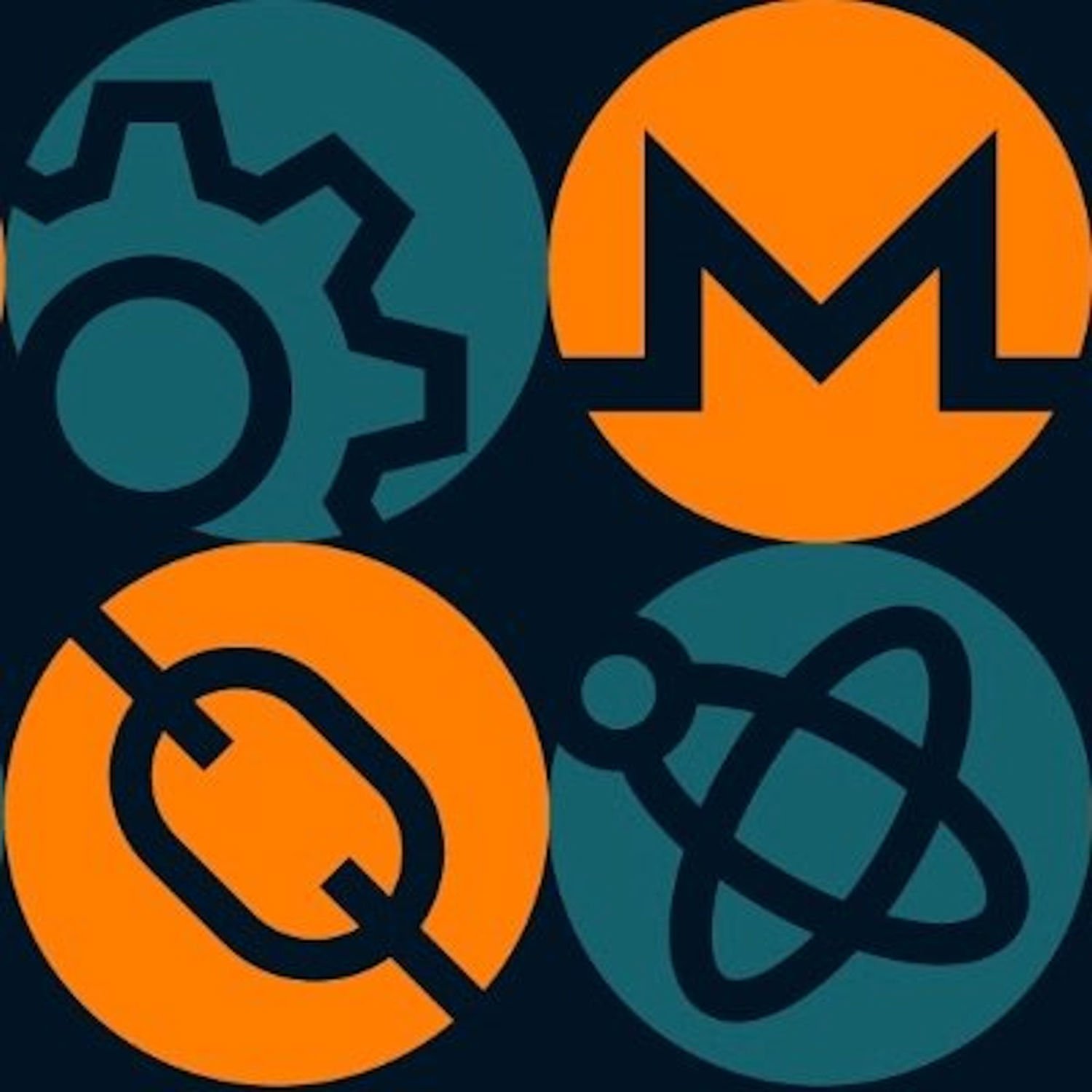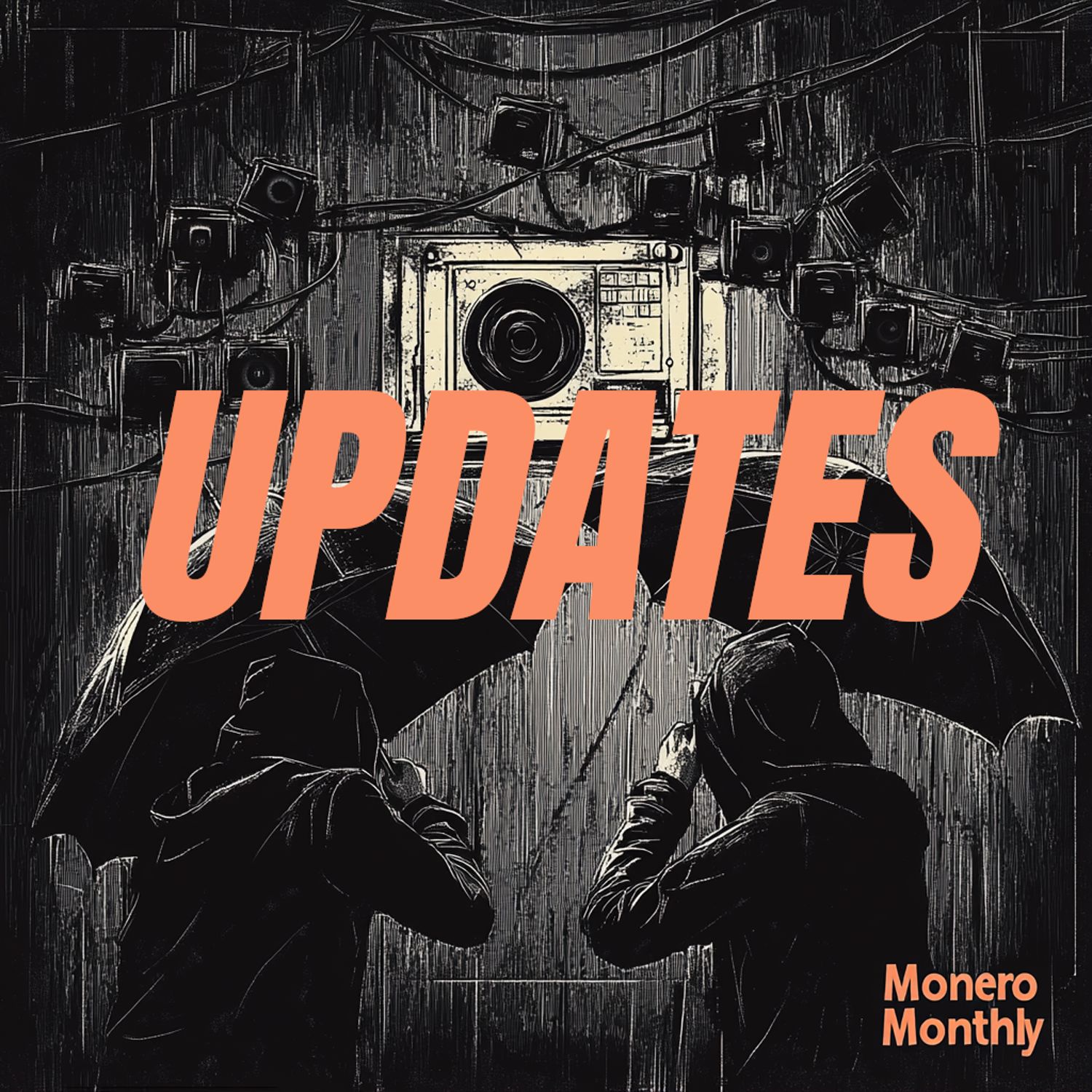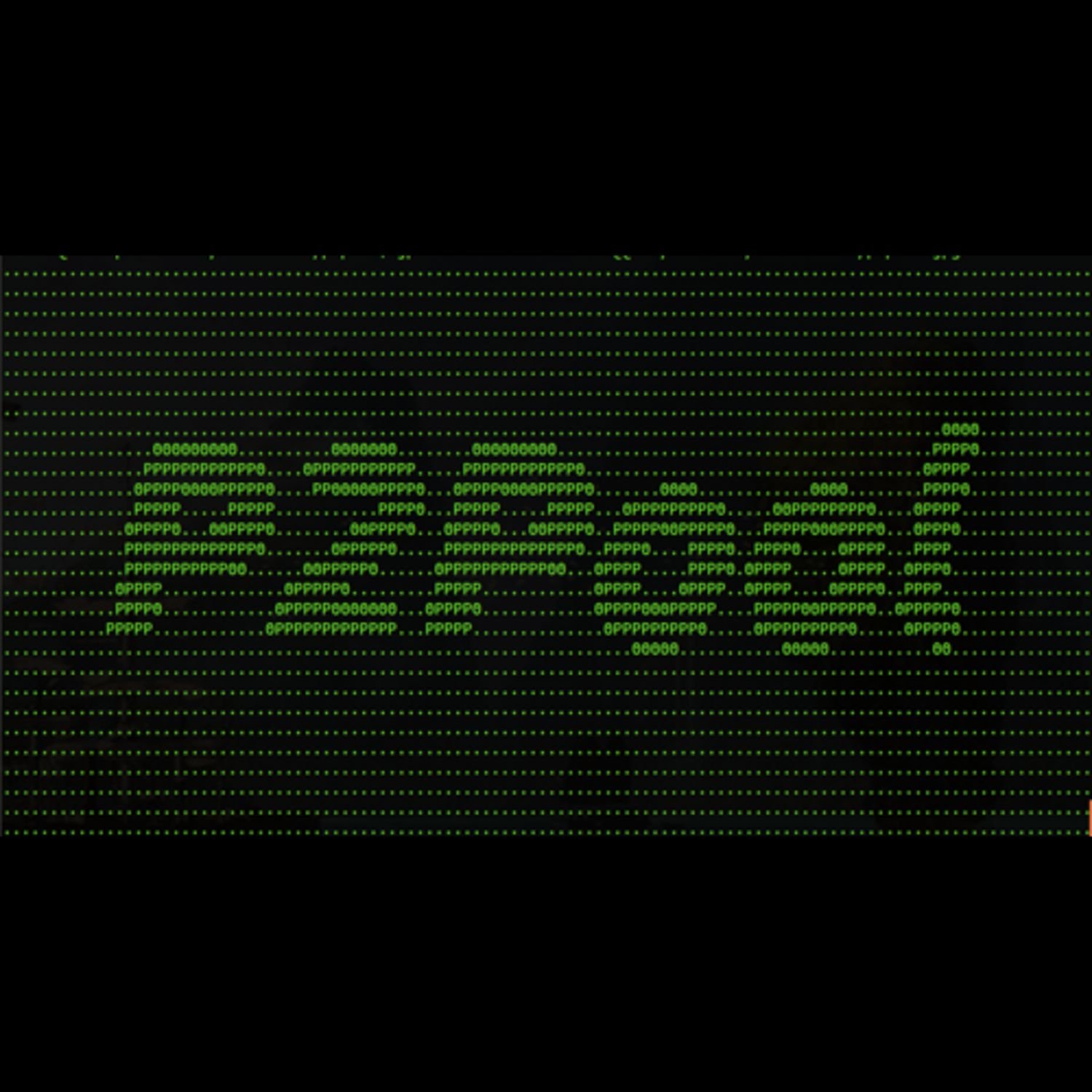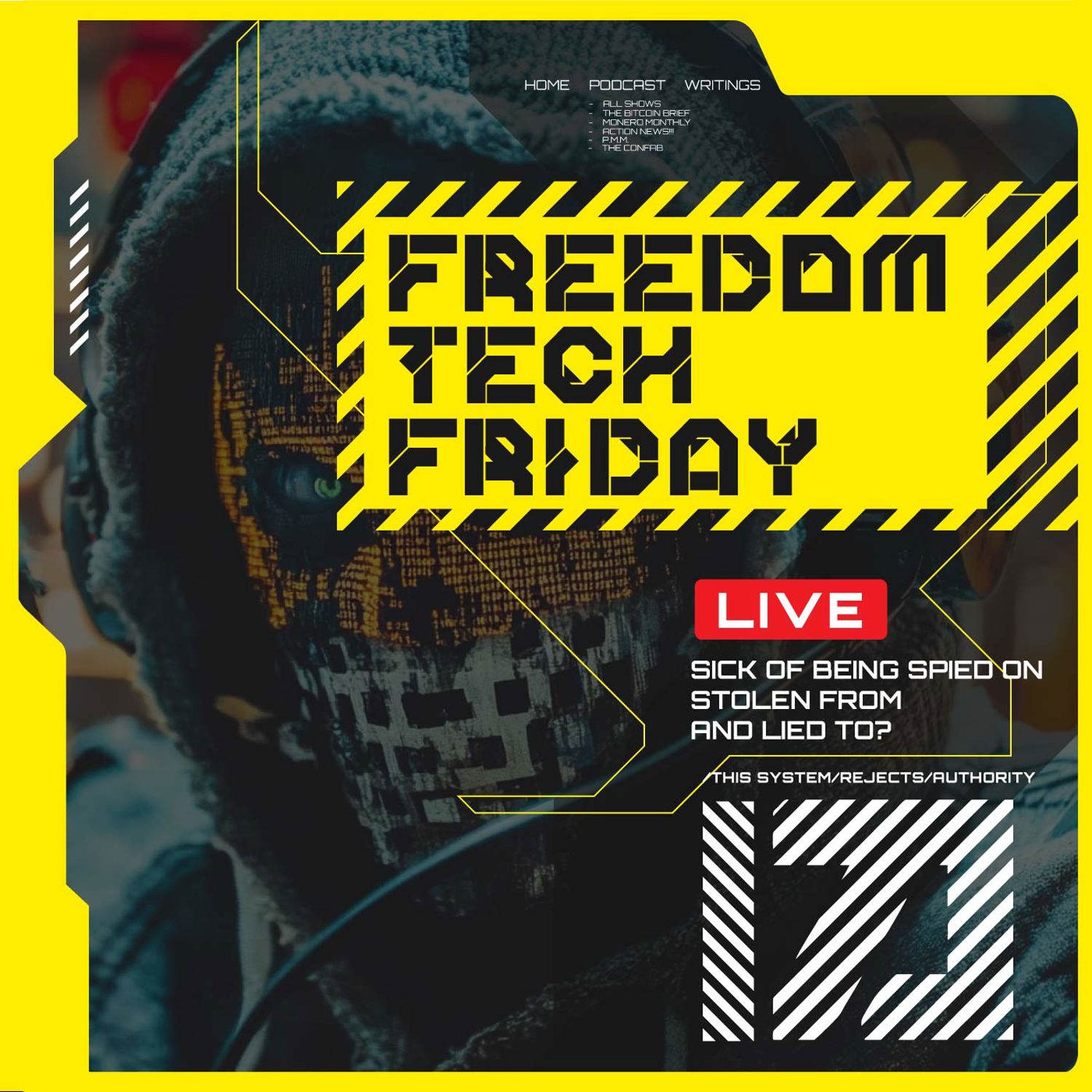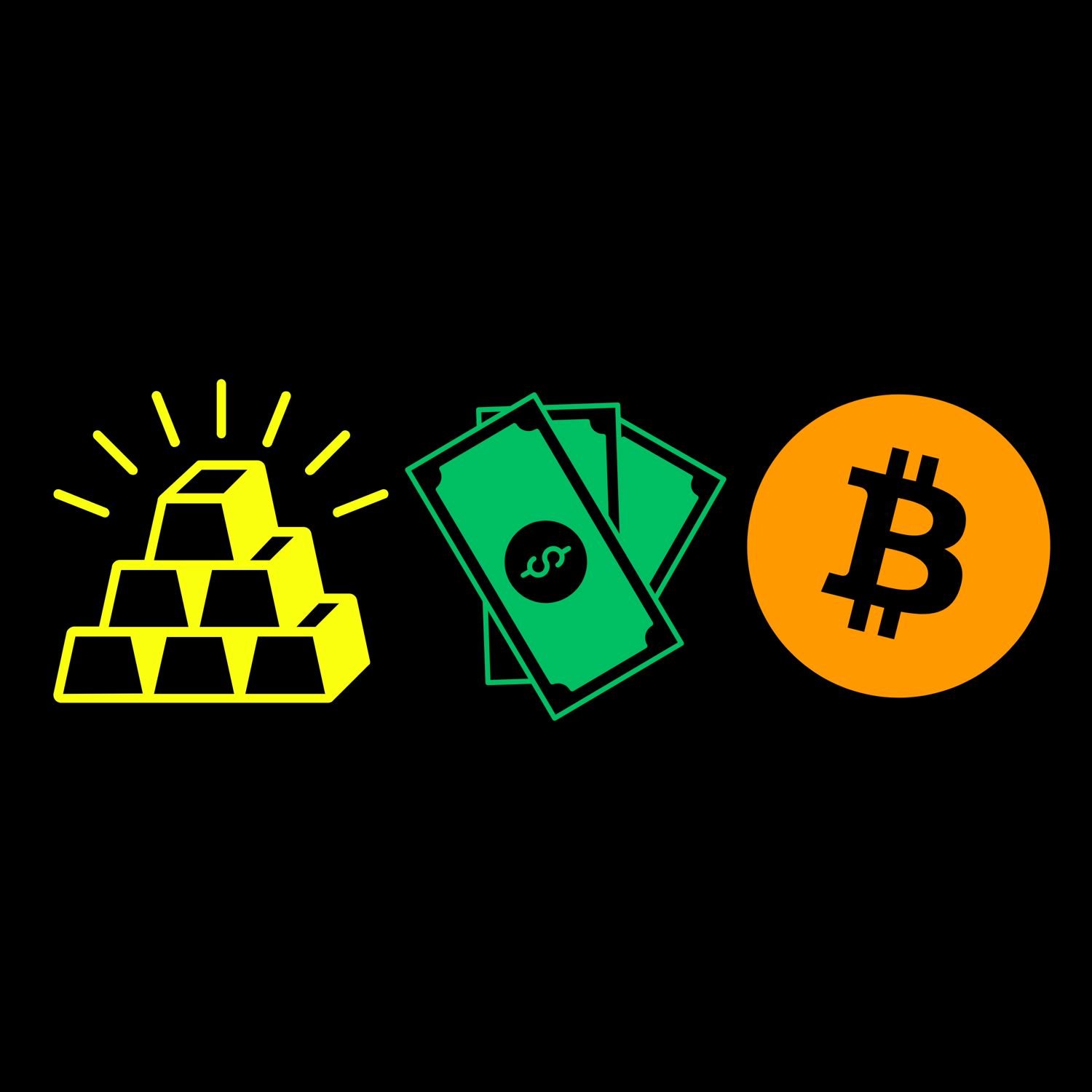General
18-block re-org
- https://rucknium.me/posts/monero-18-block-reorg/
- https://github.com/WeebDataHoarder/Monero-Timeline-Sep14
FCMP++ stressnet begins October 3rd!
- https://x.com/monero/status/1972735143673795024
- https://github.com/seraphis-migration/monero/releases/tag/v0.19.0.0-alpha.1
Software updates
Cake Wallet v5.4.0-2
- https://blog.cakewallet.com/cake-wallet-releases-pay-anything-making-crypto-work-the-way-you-think-it-should/
- Pay Anything
- Tor for iOS + improved on Android
- https://monero.observer/schernykh-releases-p2pool-v4.10/
- https://monero.observer/p2pool-v4.11-released-monero-node-bugfix-subaddress-support/
[[LINKS]]
VALUE FOR VALUE
Thanks for listening you Ungovernable Misfits, we appreciate your continued support and hope you enjoy the shows.
You can support this episode using your time, talent or treasure.
TIME:
- create fountain clips for the show
- create a meetup
- help boost the signal on social media
TALENT:
- create ungovernable misfit inspired art, animation or music
- design or implement some software that can make the podcast better
- use whatever talents you have to make a contribution to the show!
TREASURE:
- BOOST IT OR STREAM SATS on the Podcasting 2.0 apps @ https://podcastapps.com
- DONATE via Monero @ https://xmrchat.com/ugmf
- BUY SOME STICKERS @ https://www.ungovernablemisfits.com/shop/
FOUNDATION
https://foundation.xyz/ungovernable
Foundation builds Bitcoin-centric tools that empower you to reclaim your digital sovereignty.
As a sovereign computing company, Foundation is the antithesis of today’s tech conglomerates. Returning to cypherpunk principles, they build open source technology that “can’t be evil”.
Thank you Foundation Devices for sponsoring the show!
Use code: Ungovernable for $10 off of your purchase
CAKE WALLET
https://cakewallet.com
Cake Wallet is an open-source, non-custodial wallet available on Android, iOS, macOS, and Linux.
Features:
- Built-in Exchange: Swap easily between Bitcoin and Monero.
- User-Friendly: Simple interface for all users.
Monero Users:
- Batch Transactions: Send multiple payments at once.
- Faster Syncing: Optimized syncing via specified restore heights
- Proxy Support: Enhance privacy with proxy node options.
Bitcoin Users:
- Coin Control: Manage your transactions effectively.
- Silent Payments: Static bitcoin addresses
- Batch Transactions: Streamline your payment process.
Thank you Cake Wallet for sponsoring the show!
MYNYMBOX
https://mynymbox.net
Your go-to for anonymous server hosting solutions, featuring: virtual private & dedicated servers, domain registration and DNS parking. We don't require any of your personal information, and you can purchase using Bitcoin, Lightning, Monero and many other cryptos.
Explore benefits such as No KYC, complete privacy & security, and human support.
Good morning, Seth. How are you?
[00:00:03] Unknown:
I am doing pretty well. I'm two coffees deep. It's 9AM. Third definitely happening as well today. So, we'll we'll see if we can get out of the brain fog and get some good Monero stuff out there.
[00:00:15] Unknown:
Very good. Quite a lot going on in Monero world. Definitely didn't wanna miss this one. What do we got coming up?
[00:00:21] Unknown:
This one snuck up on us as I feel like it always does. And it's gonna be become the the trope of the show is we always talk about how quickly time flies between each episode. Yeah. I know. It's true. It's true. Yeah. Manera Land has been busy, has gotten a little quieter over the past couple weeks, which has been nice because I've been trying to not spend as much time on, like, Twitter and stuff. So it's been nice that it's been been a little bit more calm, but we definitely still have plenty to get through today. Have a few kinda just general topics, few updates as normal. Jump into a question, actually, from the Freedom Tech Friday show that that you can unpack a little bit for us later. Our usual chats and booths. So it should be a good one. We'll try to keep it tight for everybody too. Nice. Let's roll. So the topic du jour, which we have talked about quite a bit over the past few episodes. So I won't rehash too much of it, but there was a major 18 block reorg in the Monera chain this month. Louis, September 14 that this happened. And this is kind of the death throes, if you will, of the cubic selfish mining scheme. Pretty much the last thing that they did before they supposedly are switching to mining Doge now instead and training their AI that can't do basic arithmetic fun stuff. But yeah, this is pretty much the last thing that they've done. And a quick summary, basically, on September 14, these cubic guys on their pool have been continuing to do selfish mining, which means that they mine in secret until they get a longer chain.
And then they publish that all at once so that they can get an outsized portion of the block rewards. They get more than they would if they were just honestly mining. It's a pretty well known attack in the crypto space, but it's very rarely actually done just because it does have a lot of downsides as well for the attacker. But as we talked about, this attacker essentially is printing their own money with their token. So they're able to subsidize it with funny money rather than having to, like, actually spend Bitcoin or dollars or Monero on it. So the main two issues out of this, thankfully, they're as far as I know, I haven't heard of any actual double spend attack. I mean, Cake Pay is one of the biggest Monero vendors as far as I know, and we didn't experience any double spend as part of this reorg. But the way that Monero works with the 10 block lock, if there's a reorg further than 10 blocks, it can cause a lot of oddness for transactions, basically, with transactions being invalidated and having to be completely resent, not just rebroadcast, but having to be reconstructed. And I can maybe get into a little bit of the details on that. We'll also have a link in the show notes about a lengthy blog post that wrote that has really, really good detail and really good explainers and visuals and that sort of thing. But that was definitely an interesting event from this month. So when they did this 18 block reorg,
[00:02:54] Unknown:
what, if any, disruption was there? Because from what I've seen, like, buying gift cards and doing other things with Monero, most of the companies are sort of saying I can't remember if it was, like, 30 blocks or 50 blocks wait time before things were being released. So they were sort of preparing for something. Was there any impact on anyone or anything?
[00:03:16] Unknown:
Yeah. As far as I know, there was not actually any impact. The root of it was, like I said, as far as I know, there were no intentional double spins. But because of the 10 block lock in Monero, the assumption in any Monero transaction in order for it to be valid is that the decoys that are referenced stay in the exact position and order that they're in when you create and broadcast the transaction. So, like, let's say you created a transaction and one of your decoys was 13 blocks deep, and then this 18 block reorg was published immediately after that. That decoy that you used that was 13 blocks deep probably isn't in the exact same order as it was on the honest chain. And so your transaction actually becomes invalid. The way that you actually sign for ring signatures is you have to sign a public key that's valid for all of those decoys, but it it uses an output index that says this is where this transaction is in the global state of Monero. And so if that transaction changes, its index changes where it is in the chain, your transaction is invalid. So, like, if this happened in Bitcoin, for instance, all you'd have to do at most would be rebroadcast the exact same transaction.
The way that Bitcoin or first other outputs is different and simpler because of the lack of privacy. And so, generally, your transaction would just be included in the malicious chain or would just be mined in the future because it would get kicked back to nodes mempools because it's still valid. But if an error, it's not valid anymore. So the only way to actually send that transaction is to resend it with new decoys that are properly referenced in the new longest chain. So it causes some weirdness and has the secondary downside of any of these transactions that were invalidated when they're respent because all the decoys are changed randomly, the only input that will remain the same will be the true spend. So they also lose privacy for that specific output when spending it because there's no way you could reference the exact same decoys a second time. And so there is a loss of privacy for just those invalidated transactions, which I believe there were, like, a 125 invalidated transactions. Well, most of or a 115 invalid transactions.
Well, most of the transactions actually remained valid because they had a reference decoys that were further back than the 18 block, reorg. Does that mean it makes it more difficult to double spend and do these kind of trickery things because of these decoys? So it doesn't really change how, like, difficult or easy it is because it does still just come down to proof of work. Like, Monero still uses a way to prove that a specific input is not double spent called key images. It'll essentially be the same difficulty as in Bitcoin. The main thing that's different is just that you can essentially accidentally double spend isn't the right word. I think in rep names blog post uses the term resend where you're spending the same input again, but you have to do it because there's no other way to actually make the funds go to the right person. So if your transaction was one of the 115 that were invalidated, you have to resend it. And it kind of looks like a double spend because the funds were sent confirmed and then a new transaction replaces it. That is different. It could go to the same entity. Like, if you were an honest actor and you had paid for a gift card, and then you went, oh, I got my transaction back. Like, that's not supposed to happen, and you reached out and settled out of band for that. You could do that, and you would be resending the same input. It's not a double spend technically because now there is no original spend that was in the chain. You're forced to by the way Manero works. So in some ways, it's a little worse because it can make people accidentally double spend. Whereas in Bitcoin, normally, what would happen is those transactions that were in the honest chain just get kicked back to the mempool and then picked up by a new miner and hopefully mined in the next block or whatever based on fees. So it causes more disruption than it would in Bitcoin to have any kind of reorg that's over 10 blocks in Monero.
Okay. Alright. It's a pretty good summary of that. Like I said, there's a blog post that will link in the show notes that has a very lengthy detailed visual explainers. It's absolutely fantastic to help you understand what happened, why it happened, how Bitcoin and Miner worked differently. It's very good explainer and good for people who aren't even super technical. Raknam did a great job on that. So if you want more detail on that reorg, definitely go take a look at that. And then he has links out to a lot of other information about lists of all the transactions that were invalidated, ways to explore and kind of click through all those transactions. A lot of good stuff there, so definitely recommend.
Second topic, there was a new selfish mining mitigation strategy published. I know we did this, let me see, the last episode or the one before. We kinda went through all of the current proposals for preventing selfish mining, essentially preventing exactly what the cubic pool has been doing. And we had talked about one called publish or perish by Tevador, who was one of the main devs for Random Acts. And there were some issues found in that one. You can go back and look at the links in the last show notes to see all the comments on exactly what was found that was an issue with that. But, essentially, Tevador went back to the drawing board, took the things that were good from publisher perish, and another potential way to mitigate this that uses work shares, and essentially combine them to create a new selfish mining mitigation strategy that seems very solid and that they've done a lot of essentially modeling around to check that the security is valid to improve the specifics of how this actually prevents selfish mining. The kind of the TLDR is that this would make it much, much, much more difficult to do any sort of a reorg greater than three blocks. And remember, like, we're just talking about reorgs greater than 10 blocks are the most harmful. So, essentially, we want to make that very, very difficult for an entity to selfishly mine 10 blocks or more. So, for instance, in Monero, if the attacker had 33% hash rate, they would expect to achieve a long reorg of 10 blocks or more once per ten days of selfish mining. Just essentially based on luck, eventually, they could get that longer chain. That's what we think Cubic did is there's no real indication they were ever over, like, 33 to 35%, but they could just essentially just keep grinding and hope to get lucky and eventually get lucky to have a longer block.
[00:09:01] Unknown:
Yeah. You could have less hash rate, and it would a bit like a a solo miner just occasionally hits a block. They could have a lot less than 33%
[00:09:08] Unknown:
and get the eighteen days. Yeah. For sure. And just like a solo miner multiplied by a lot because they do have a pretty high amount of hash rate. So that luck just increases there. So that was what was possible. And then with this attack, they would have it was something like a 5% chance before. Now it would be a point 066% chance for that to happen with the same amount of hash rate. So much, much more effective and much better than traditional consensus within Bitcoin where, like, a three block reorg could be done once an hour with that amount of hash rate. That was for three block reorgs. For deeper reorgs, they have noted that it's even more difficult and essentially makes it impossible. It it is possible, but they have to reach a drastically higher chance of luck or have much more hash rate to be able to mine those much longer reorgs. So there's more detail in the link that we'll post as well, but the idea with the recommended variables is that it would take, like, two to three years to get lucky enough to mine a 10 plus block reorg as opposed to a few days with the current approach. It's a drastic improvement.
Obviously, still being researched. Just a lot of discussion happening around that, but that seems like a very promising proposal. And just like publish or perish, it doesn't require a hard fork or anything like that. It would essentially just require
[00:10:20] Unknown:
miners to start using this method in a soft fork of sorts. It's a promising one for a short term fix. Good. Yeah. Because I remember when that was all happening, and there was a lot of discussion on different options and a lot of infighting and stuff. It seemed I'm so far out outside of the Monero bubble. Like I only really use it a little bit, speak to you couple of others and that's it. So I don't see the same way that I see in Bitcoin world, but it seemed
[00:10:48] Unknown:
that it was quite a contentious topic, and it'd be good to get that sorted. Yeah. It very much is contentious. And I think I mean, anytime you're touching mining, I think everyone's gonna be a little wary because, I mean, that is the entire security mechanism of these things. So Yeah. It does pay to be wary. But I think also just like in any community, there are people who are their idea of what makes Monero valuable is one very specific thing, and that social consensus is a key part of the security as well. So there are some people who justifiably have some aversion to specific changes. Some, I think, just don't like specific buzzwords or terms, and so it kinda scares them off from any change. But I think this type of thing is a pretty much a no brainer because the other thing I didn't mention is some of the other proposals would make it harder to verify the chain as you sync. So, like, initial block download would take a lot longer in some of the other proposals.
This one, essentially, there's no increase to verification time except for the last 10 blocks. So, like, the way that the algorithm works, there would be a little bit more verification time for the top 10 blocks at the top of the chain. But for everything historically beyond that point, there would be essentially no change to block verification. So that's another important part of this. It doesn't slow down initial block download either. So it's a pretty awesome proposal. Yeah. Next up is really exciting news for FCMP plus plus. So So I know we have a question, or we'll jump into this a little bit later on. But the proposal itself, obviously, it's been in progress for what feels like years now, but really good progress has been made. And now they're finally ready to do a public stress net, which you can think of kind of like a test net, but with the sole intent of doing things as aggressively as possible to try and find where the edge cases are, where the issues are. It's a public stress net. So if you are a little bit more technical, again, we'll have links in the show notes that tell you actually how to get involved, but there are binaries you can run. There are specifics on what you should test. There's a matrix room you can join to share your findings or to ask questions.
And this is really kind of the next step and a very important step towards FCMP being deployed on the network. So really promising, awesome that we can just actually, like, run FCMP plus plus now. So it means that we're getting very close to being able to fork and upgrade Monero to drastically improve privacy through FCMP plus plus. I I like this idea of stress net as well. I've not heard that one before. I guess it's kind of like I don't know if they still do it, but Ledger had that is it the Don John or something, and they just try and attack with every, like, throw millions of dollars at just trying to attack, break into certain hardware wallets and stuff. I guess this is kind of the same way where it's like, let's see if we can break this. Do everything now before it goes into the wild. I think that's a really nice idea. Yeah. It absolutely is. And it's something that I wish more people would get involved in really throughout the space. I mean, like, Bitcoin has Bitcoin core does these, like, testing phases with release candidates where they give very specific instructions on, like, these are the things that need to be tested in this release, and they want more people to test things. Different hardware, with different networks, and different scenarios, it's gonna drastically improve the chances of finding any issue before you've actually published a release to the world. So really, really important and oftentimes isn't as complex as it might seem. I mean, now this isn't gonna be for, like, the absolute noob. You should be a little bit more technical to be able to jump into the stress net, but I know there are people in Matrix who'd be happy to help someone who's at least reasonably technical to jump in and start working on this. And the the more people step in and actually help out, the better it's gonna be. So it's definitely a a key thing for people to pitch in with. Or if you don't feel comfortable or capable enough to actually, like, help in the stress net, just spreading the word, talking to people you know who may be interested, talking to devs, you know, even outside the Monero space if they wanna jump in and and try it out and see what they can break. That'd be fantastic.
[00:14:29] Unknown:
Yeah. That's cool. You know how you have, like, bug bounties? Do you ever have things like that where it's like stress net bounties? Like, if you manage to fucking break this, then there's bounties either in Monero or Bitcoin where people who maybe aren't necessarily into Bitcoin or Monero but are very technical and capable, might jump in, and you might get people attacking in different ways that are slightly outside the box or something like that. Yeah. I think, normally, that's going to fall into the, like, responsible disclosure
[00:15:03] Unknown:
hacker one side of things. So, I mean, you could do just kind of, like, a grassroots bounty program. The main problem is there's too many people out there who are just gonna try to game the system to get free money. Okay. Unless there's, like, very strict guidelines around it. So that's why normally this would be, like, for harsher vulnerabilities. More generally, you can go through responsible disclosure through hacker one for the Monero project. And there are quite large bounties ready to be paid out to anyone who finds a bug that's obviously validated that has a clear risk. There are, again, very strict guidelines there because there are people who would just love to lie or make up useless bugs that don't actually matter to try to get money. So there's nothing for this one specifically. Now if somebody wanted to say, like, every bug, I'll give out a dollar worth of an error or something. It's definitely a possibility, but there's nothing official with this, just to be clear. Okay. Yep. Last general update before we jump into some software updates, and this is definitely a sad one. So MoneroCon has been, like, the premier technical Monero conference for, man, six years now. I think it started in 2019 in Denver, which is the first conference I ever went to. They have decided to cancel the twenty twenty six MoneroCon.
There's a variety of reasons. The primary ones are essentially just the difficulty of actually coordinating it, doing payments while trying to take payments in Monero and having to pay in Fiat and just a lot of stressors and issues have added up to kind of wear out the team. So they've said they're gonna cancel 2026, but that MoneroCon itself is not canceled, the idea. Their plan is to be back even bigger and better in 2027. They kind of take the year to reset to find better ways to actually run this and to get in a better place that's more sustainable. So it doesn't mean there will be no ManeraCon in 2026, but that will be back in 2027, hopefully even better than ever. So definitely still sad, though. It's one of my favorite conferences in the space and
[00:16:50] Unknown:
always a good gathering of some of the brightest minds in Monero and in the privacy space more generally. So yeah. Well, burnout is a real thing, so sometimes it is better just to take a break and come back. Is that the one that you went to in Mexico recently, or is that a different one? So that's Moneritopia.
[00:17:06] Unknown:
So that one will still be on. I believe Moneritopia is in February year and still in Mexico City. So that's a little bit less technical, but a little bit more like an unconference in some ways. Like, last year, they had local vendors accepting Monero, like, hundreds of local vendors and multiple different stages with different focuses. So it's a little bit less technical, more approachable, a little bit more unconference y. And then MoneroCon is the one that for the past few years has been in Prague at second culture, what used to be called.
[00:17:35] Unknown:
So they've been there for the last few. Is that the one that crosses over with the Bitcoin conference, the honey badger or whatever it is that they run there? Is that the crossover?
[00:17:43] Unknown:
So I've missed a couple years. This year, it was paired with the b two c Prague conference. That's it. Yeah. So we had b two c Prague, like, the cake team sponsored b two c Prague and Minero Con, and they overlapped by one or two days. Right. So it was paired with that one this year, but I'm not sure. I think the dates were different last year. So it may have overlapped with Honeybadger then. But so let's, yeah, let's jump into some software updates. Not a ton over this past month. I feel like a lot of the dev time has gone towards this mining attack and trying to find good ways to solve it. So there's been a little bit less on the the software updates front. But three things that I did want to highlight. First up, Cake Wallet. We had one release over the past month, 5.4.o. We've been trying to slow down a little bit to build out some bigger things behind the scenes. Hopefully, we'll be able to share soon, but we did release five dot four dot o, which had two really, really big things. So one of them was what we're calling pay anything. I think we need to come up with a better name for that. But the idea is basically no matter what wallet you have, let's say you only use k wallet for Monero. You don't wanna mess with Bitcoin or stable coins or whatever. You only wanna use Monero, but sometimes you need to pay in something else. Not every vendor accepts Monero. Sometimes you do need Bitcoin or you need Lightning or you need Tether or something like that.
Essentially, pay anything just means that if you scan or paste in an address for a different chain, like Bitcoin, like Ethereum, we will automatically help to essentially build a swap for that to the right currency with the amount repopulated if it was in the QR code, all that good stuff. Make it really, really simple for you to actually make that payment without having to go through the normal, like, swap flow and then enter someone else's address. And it was a little clunky before. So now you just scan a QR. If it's a a lightning invoice, you'll automatically get prompted to do a swap to lightning, which we have some partners who will handle that for you. And you just hit send, confirm the or confirm the details before you hit send. Then hit send. And the person on the other line, usually in, like, five to twenty minutes depending on specifics, will get that payment, and you don't have to worry about touching anything other than Monero.
[00:19:44] Unknown:
I didn't think you had Lightning. I literally I had someone yesterday contact me and was like, oh, yeah. I need to start using Monero. What should I use? I was like, use Cake Wallet. Went through. He's like, yeah. What I wanna do is either send in Lightning or send out Lightning and swap with Monero. And I was like, I don't think
[00:20:02] Unknown:
they have lightning. I should know this, but I don't think so. But it sounds like you do. Yeah. So we don't have a ton of vendors that support it or a ton of swap providers, I should say. So it is a little bit limited, but, like, Trokadore specifically, they do support. To be specific, pay anything is for you sending something to someone else in a different currency. So, like, if you needed to pay a lightning invoice or even if you just wanted to simplify swapping from Monero to lightning, you could, for instance, enter your own lightning invoice, and then we'll automatically help you to build the swap for that.
So that does work today. Obviously, we don't have native lightning in cake right now. That is something that we're we're just about to start working on and have chosen a path for. But, yeah, you you could do those swaps to lightning directly in cake, which is a pretty sweet pairing. I mean, it is gonna take longer than if you're, like, paying native lightning to native lightning because, obviously, we have to actually make the swap. You need confirmations on Monero, that sort of thing, but still super handy and makes it a lot easier. Is there a use case here for
[00:20:59] Unknown:
someone who wants to swap from on chain Bitcoin into Lightning? Someone who might rather than opening their own channels and doing all the channel management and stuff like that, who might use something currently like, I don't know, like Moon or or something where they're sending in on chain and then paying out Lightning. How does that work differently fee wise, etcetera? Are there is it sort of comparable fee wise if someone was using something like Moon to start rather than doing that and doing the swap into Lightning and sending out to just do it this way? I'm not sure exactly what fees Moon charges for payments. I think it's 1%.
[00:21:43] Unknown:
Yeah. I think it would be slightly more expensive to do it in cake. Okay. The other main thing is that you are just using a swap provider in cake versus doing atomic swaps, which is what Moon does for submarine swaps Yeah. And what bolts does. Mhmm. So it is also a little bit more trusted. Like, I'm just gonna be completely honest. Mhmm. But it would be much simpler to use cake for that than using, like, Phoenix plus bolts. That would be, like, the pairing that I think a lot of people do right now, and that one is trustless and would be lower fees. So there are different paths to go to, and cake would be a little bit more expensive, but would be much simpler.
Alright. And then the second thing that is big in this release was native tour for iOS, finally. So we're able to get that shipped so you can just turn on and toggle and use all your traffic over tour on iOS. And then as part of this, we found a better package as well to use for Android. So we've improved Tor support on Android as well. Again, just making it easier to to have that network level privacy.
[00:22:41] Unknown:
When you run Tor on iOS or Android, does it mess with the ability to see the exchange rate
[00:22:51] Unknown:
between Monero and USD or GBP, or is that if you've got there's other privacy settings. I sort of turned all my privacy settings on and then obviously can't see, like, what the exchange rate is on Mhmm. Everything. Is that tool, or is that something else that I'm doing? So there is a separate option to disable exchange rates. So you may have that disabled as well. Now there has been an issue off and on with the way that we're hosting the tour endpoint for our Fiat API. Mhmm. You've had some problems with that that we're trying to sort out. So there has been occasional downtime, but normally, it is working to get Fiat conversion rates over to our Okay. It should work. That's fine. You just make sure that you do have that toggle disabled in the privacy settings to allow it. Okay. And then we do have a native onion endpoint and everything, so it's it's very good privacy.
Nice. Two more software updates. So p two pull, which is the fantastic decentralized mining service that Monero users love, that has released, two pretty major updates before dot ten and four dot 11. Few other smaller ones in between, but the real highlights with these two and four dot 10, they implemented a new way to actually propagate new blocks to the network that is drastically faster, even faster than the core Monero daemon. And so this helps to prevent stale blocks or orphan blocks. This helps to speed up transaction confirmation times, makes the network more efficient. And even better, it helps no matter if you're mining p two pool or not. So this is a really cool change that essentially just helps the mirror network overall for anyone running p two pool and just for regular people because p two pool is also propagating blocks that it receives from the broader Monroe network. And through this p two pool p two p network. That's a mouthful.
Cool change. A mouthful, but a cool change. Yeah. Very cool. And one that you just you don't notice as a p two pool user or a main error user, but, it just helps the network to become a bit more efficient, which is important. Very nice. And then the four dot 11 release, a few bug fixes in there. Nothing too drastic except for you can now finally use subaddresses for mining in p two pool. So for a while, you can only use that primary address that started with a four, which, obviously, the main downside with that is you then can't reuse that address somewhere else without revealing that you're the same entity. Obviously, it won't reveal the transactions to that outside of the p two pool transactions. But in p two pool, the addresses that miners are mining to and the payouts to those addresses are all public, which is by design mining is public intentionally in Monero, but is one of the downsides. So now you can just use a sub address instead, and you could rotate that sub address regularly if you wanted to help to provide a little bit better privacy for you. So a good change, one that was a little, I think, technically complex, so it took a while to get added in, but that's live now as of v 04/2011.
And last software update for today. A quick one as well, but have no v one dot two dot one. Some broader improvements. The biggest one is essentially some better protections against reorgs. So, obviously, since Haveno uses Monero as the base layer for all the transactions, confirmation, security, etcetera, they did some work to improve how it handles deeper reorgs to make sure that users don't get screwed over or lose money or just have more problems than they necessarily would have when there are deep reorgs like the one that happened on September 14. So, again, just good hardening. One of the good outputs of attacks like this is that it forces the Monera community to kinda step back and reprioritize a bit, and that's helping to make the software throughout the ecosystem harder to attack, more resilient, better for users. So another example of that. Very good. Okay. Well, you wanna jump into our, our one question for this week, and then we can we can go through the chats and boost.
[00:26:32] Unknown:
Boyakaksa? Boyakaksa? Oh, Boyakaksa. Boyakaksa. Right? How is the FCMP plus plus Monero integration, and would it be better than Bitcoin? How does it compare to PayJoin v two? Well, obviously, we just covered FCMP, like, where it is the state of play. So progressing well, would it be better than Bitcoin? Quite difficult to answer. In terms of privacy, obviously, generally, yes. Very much so. And how does it compare to pay join v two? You'd have to go into intricacies there, but from my understanding, the privacy is in a completely different universe.
[00:27:16] Unknown:
Yeah. It's very hard to compare. I mean, the main thing with Bitcoin is, like, pay join, silent payments, coin join are all useful tools, but they're all, like, one small piece of the broader puzzle. Honestly, it's similar to what FCMP plus plus is within Monero. Like, FCMP plus plus, the primary advantage that it brings is that now instead of saying, hey. My input is one of these 16, and I'm not gonna reveal which one. Now you're just saying my input is one of any previous output on the Monero chain, which is like a 150,000,000,000 potential inputs.
And you just have better privacy from the sender's perspective. So in some ways, I guess, you could compare it to pay join, and the pay join is essentially a a sender privacy feature. But pay join is is essentially forcing you to work with someone else to construct a transaction collaboratively to hide the amount, or I should maybe I should say obfuscate the amount since it's not encrypted or anything, but it's it's hidden in the way that the change outputs work and then to to hide who owns the inputs. So in some ways, it does kind of do similar things to the the input proof system in Monero, which will become FC and p plus plus.
But it's only one little piece of that pie. Because if you're doing a pay join with funds that have a direct history tied back to you, it could actually be worse because you're revealing that history to the person that you're paying. And as a recipient, you're also revealing some history to the person who's paying you. In some ways, it can be worse than regular just like silent payments. Yes. They help on the receive side, but if you then go and combine all of those inputs to go spend them at a KYC exchange or with a merchant who has your address, you can tie all of those payments back together. There are ways to surveil that. It's very hard to do, like, a an apples to apples comparison here. But, overall, the idea is just basically the FCMP plus plus solves the last remaining weakness in Monero's privacy protocol and make sure that, holistically, it's essentially as good as possible.
Whereas Bitcoin, you have to do a lot of extra things to still get even reasonably good privacy, and you'll never achieve the same privacy on Bitcoin as you would with Monero even today, but much less when FCMP plus plus is live. Yeah. It's just like out of the box. Like,
[00:29:27] Unknown:
it just does it. Whereas with Bitcoin, it's like you can achieve pretty decent privacy, but you have got to be very thoughtful about how you do things, not just at the time you do them, but afterwards, like you say, not then combining those UTXOs afterwards. And there's a lot of thought. It's easy to shoot yourself in the foot whereas with Monero, especially with FCMP plus plus, you just start off in a much, much
[00:29:55] Unknown:
more private position with less thought. Yeah. For sure. For sure. And I think with the right tools, you can get Bitcoin to that good enough stage on privacy. But like I said, it's just it's gonna be much more difficult and much easier to shoot yourself in the foot at some point down the line. So that's the the main place where Monero just makes it simple for everybody, even grandma to have good privacy.
[00:30:16] Unknown:
Yeah. XMR chats. Xpatriotic with 0.028 XMR. Great show as always. I'm debating having my work Optiplex hashing for XMR. While I'm not using it in evenings and weekends, not keen to have a conversation with them about energy theft though if I got caught. Probably just mine at home. Random thoughts. One, we should call it Mongoloid monthly. I don't think we should do that. Gonna upset too many people. Two, Pies. Hey. You should hit up Jordan to join the sovereign Bitcoin signal group. Yeah. You should, Pies. It's a good group. Would they know if he's mining it on his OptiPlex at work?
If he's logged in, they wouldn't be able to see his traffic, would they? Like, is there any way they'd know?
[00:31:19] Unknown:
Yeah. I mean, it obviously depends what kind of workplace it is. If it's like a large corporation, they're gonna have monitoring, which is gonna have prebuilt detection for detecting XMRIG or Monero mining since that is one of the primary things that malware does within Right. Big corporations is it mines Monero using free cycles because it's an easy way to make money. So it is definitely detectable. Now, obviously, it depends if it's like a mom and pop shop. They wouldn't be able to detect it, but, obviously, like, just make sure you do the right thing by your employer too. Like, they probably would be fine with you doing it, honestly, if you have a good relationship with them. And just say, hey. When I'm not using this computer, can I mine a little bit of Monero on it and Yeah? Show you a little bit about it? And that could honestly start some really good conversations versus you don't want their first impression of Monero being You're stealing their energy. Oh, this dude stole our electricity to mine it.
[00:32:06] Unknown:
Yeah. And don't steal from a mom and pop shop. Like, it's fucking hard doing that type of business, and you wanna see more of them, not less. So I know you wouldn't do that anyway, expatriate. But Yeah. You know, if it's a big, faceless,
[00:32:19] Unknown:
disgusting corporate entity, then, you know, consider it if if you could find a way around, but not not not mom and pop shop. Yeah. And I think you just you'd be surprised at how open many companies would be to you doing that. If it's hardware that's for you and you're not using it, it's usually not a problem. It's more gonna be a problem if you like you have data center access, and you you spin up a thousand machines to start mining Monero on the weekends. This is where you're gonna have pain points, but a lot of places would be totally fine with you using your your computer for what you wanna use it for in in off hours. But, yeah, case by case.
[00:32:53] Unknown:
Yeah. I've always said to a little bit of a tangent here, but I've always said to John, and we've talked about on the, mining show, probably have to be a little bit careful to some degree with this. But there's a lot of small businesses in cold places that run heaters, like tire shops and garages and places where, like, they're in a warehouse kind of thing, and they run, like, gas heaters and things. When you're running those type of businesses, you can write off the cost of your electricity or your gas anyway through the business.
So I'm surprised, not that surprised, but I'm kinda surprised there's not more people in these types of businesses running either Monero or Bitcoin mining and then creating heat and then writing off the cost because effectively at that point, your input cost is zero outside of the hardware. And if it's Monero and you already have computers and stuff, well, then it's even less because you're not buying additional hardware. Mhmm. It's just something like it's a trend that you just do not see, but it's one of those things where I look at it. I'm like, it just makes so much sense for some people, but I guess maybe it's just too niche.
[00:34:02] Unknown:
Yeah. I mean, I think the biggest hurdle is less the, like, legality of it. I would think that it would be fine. I mean, you're just using electricity to create heat. Yeah. I don't know why it would be, like, wrong or illegal to also generate Bitcoin with that heat. It's, like, the best possible use case for mining cryptocurrencies is you need heat anyways. Why not get cryptocurrency at the same time in a a manner that's roughly as efficient for heat generation?
[00:34:27] Unknown:
Yeah. And free. Because if you did it at home, you still gotta pay for the electricity because it's like, oh, it's personal consumption. Well, if it's at a business and it's for business purposes where you can write that cost off or put it off against your business, so you suddenly are mining at zero. So I don't know. It's just something I think about a lot. Yeah. For sure. I would love to see more of that, and I think there's been a good trend in the Bitcoin space to start using Bitcoin miners for, like, traditional heat systems Yeah. For heating pools, heating bathtubs, heating hot tubs, like,
[00:34:55] Unknown:
that kind of thing, I think, is a perfect fit. So I would love to see that. And Monera makes that even easier because you don't have an ASIC that may or may not be hard to source depending on where you are. You can use old servers for that. Just throw a server rack in a office space or something where you need some heat and run it. It can be noisy. Obviously, you need to be smart about how you did it, but, especially like you mentioned, like a a warehouse or a mechanic shop or something where it's already a noisy space. No one's gonna notice a few fans spinning and generating the heat and making you money at the same time, which is a pretty awesome use for that. Definitely.
[00:35:26] Unknown:
Web wipe sends 0.018XMR and says, Web wipe is doing a privacy meetup in Nashville on September 20. Sorry, web wipe. I presume you're gonna do one next month. So I'll just try and show anyone who's not already going to these and can do, really should, like, constantly. We might have actually read this on the Bitcoin brief I think we did. Or Yeah. We read it on something. I'm sure I'm sure we've read this one. I think we read for the same event on the last minute monthly.
[00:36:00] Unknown:
I'm pretty sure he has sent one in for that one as well. So Okay. Well, thank you, WebWipe. And, yeah, the location
[00:36:07] Unknown:
was at, Disc Insider from six till 10PM at 1235 Martin Street, Nashville, Tennessee. They're doing presentations or did presentations on Monero tools, Bitcoin tools, and more. Great events. Thank you, Webbyte, for, putting those on. Shortwave surfer 2008 sent 0.0003 XMR and says, Seth says he would have more money saving in BTC. Stop bitching about a private 15% CAGR compound annual growth rate that still beats the pants off stocks, and you are holding real money. Thanks, by the way, you fucking twat waffles. This is charming.
[00:36:55] Unknown:
Good point to end it. Yeah.
[00:36:58] Unknown:
That's a silly comment because it's like, oh, don't whinge about 15% CAGR when you can have that. What is it? Like, 55% or 60% on Bitcoin over the last five years? So it's it's like, okay. 15% is fucking amazing. Like, especially in traditional world, like, it is not to be scoffed at and it's private and it's great, but it's not 50% or 60% or whatever Bitcoin is. And it's like you go for whatever is the most efficient. If you want privacy, use Monero. If you want to save your money, probably use Bitcoin. I could be wrong and maybe I've been laughing in five years, but probably, I think, use Bitcoin. And, if you can get 50 or 50 or 60% instead of 15%, fucking do it. Unless you're so wealthy that you don't need to better the life of your family and give them better food and be able to pay for better health care and all that kind of stuff that you need to do, then go with the one that makes more money.
[00:37:55] Unknown:
That's just my opinion. Yeah. And like I said, I didn't say that Monero was not a positive investment over the years. I said that I could have a lot more money if I had just saved in Bitcoin, which is just true. Like, I obviously, I would like that not to be true. Like like you said, I would love to have more money to to give my family nice things and improve our quality of living and that sort of thing. Yeah. But it's not that Monero wasn't good. It's just that Monero was far better, which I think is just it's good to be honest about. But, yeah, I mean, 15% CAGR, which I definitely knew what that meant before I just looked it up while you were reading the question.
It is good, and it has been a good return on investment over the years. I'm just yeah. Just useful for people to have have honest comparisons.
[00:38:35] Unknown:
Definitely. Well, have a bit of both. Do a bit of both. Fountain boosts. Late stage HODL sent 5,000 stats and said, here we go with shitcoin monthly again, laughing face. Just kidding. Keep up the good work, and I'll try to read what you post rather than just read about proof of staking. That was obviously from my last one. Thank you, late stage huddle. Turkey sent 500 sats, pies, then a 121 sats. He says, this is a pre listen boost just in case the topic was covered. I used to like using cake wallet until they added Dogecoin. That was crossing the line with me. Can you guys please explain why your sponsor added Doge and still wants people to take them seriously? I actually answered this in the pre roll for the last episode, but I'll cover it a little bit. It doesn't upset me that cake have Doge, but I also don't have any personal interest in Doge whatsoever.
But it's not like it's the first shitcoin that you guys have. What's your thoughts on it? Why should we take you seriously, VP?
[00:39:50] Unknown:
Quite honestly, I'd share the same thoughts with you. Like, I don't really care one way or another. Doge is a like, if you're gonna add a meme coin, Doge is, like, the OG meme coin with good issuance and actual proof of work, and, like, it's not just essentially controlled thing. So it is actually kind of, like, an interesting project. Yes. It's not freedom money per se. Like, it's not something people are using for human freedom. But there were two key reasons. One of them is that we have obviously, we've been pushing the boundaries of privacy in Litecoin, and Litecoin is merge mined with Doge. And we had a lot of requests for people who are mining Litecoin.
They wanted to be able to use the same wallet for their payouts in both Litecoin and Doge because they're wanting to use Litecoin for privacy. They're gonna get the Doge, and I'm assuming probably most of them are dumping it for Litecoin or Bitcoin or something else. So that was one of the reasons. Like, we could solve that need, and, essentially, it required zero effort from us. It was already supported in one of the packages that we use. So it's very, very low cost in terms of dev time to be able to do it. And, again, just kinda lets people who would have to use I don't know what else you'd use for Doge to be able to just do that in k. Cannot have to worry about another wallet. So it's good from that sense, but I agree. I I have no interest in Doge or using it. The other one is just that we did see it talking to partners that a lot of people wanted to swap Doge to and from Bitcoin and Monero, and they could not do that in cake previously. They would have to use an external wallet. So, again, I kind of treat it as, like, a a funnel into Bitcoin and into Monero because people have Doge or have speculated on it over the years or whatever. I have unfortunately met a lot of people in person who the one thing they've actually bought is Doge just because they saw it chilled on Twitter or whatever, but then they want to swap it to Bitcoin and get something real. And so enabling that path to be easier in cake, I think, is is a good thing. Those are kinda the the main ideas. But like I said, the the critical thing for me when deciding, like, do we add this or not? It's just that it took essentially zero dev time and requires zero maintenance. It's very straightforward.
Already supported in the packages that we had. So it's a very easy thing to add, and it not it's not like it's costing us a ton of time that we would be spending on Monero or silent payments or something like that.
[00:42:02] Unknown:
Yeah. My view on all this stuff has changed a lot of the years, and I probably would have been more, I guess, like, frustrated with companies who touch the shit coins and all this kind of stuff. Now I I don't really see them any difference of fiat currencies and, like, it'll like, exactly what you said, like a way to bring more money into the Monero Bitcoin ecosystems and also to the businesses that are building and making those ecosystems better. Every time that someone swaps from Doge into Bitcoin or Monero, it means that there's more liquidity, which is better for anyone who's using it. But it also means that you guys earn some money on the swap, which then, again, is better for everyone because you can hire more devs, do more stuff, work on more privacy tools, etcetera, etcetera. So, you know, a lot of the time I see people also winch about, like, oh, fucking hell. There's there's more fees when you're using Cake Pay or any other wallet. Like, oh, they're taking fees. It's like, yeah.
They are a business. Like, that is the point. Like, most of us don't get out of bed and go, right. What do I wanna do? Spend time with my family and do the things I wanna do or go to work. You go to work generally. You might have some passion around it as well, but it is to earn money, and that's why you're risking your capital and everything else to run that business. So for all that stuff, I just look at it very much now as let's fucking do it. If you touch other shit coins or whatever and it brings more money to good businesses, more money to the ecosystems and liquidity, that's fucking excellent. And you don't see it anyway. Like, when I use Cake Wallet, I don't I don't see any of that shit. I have a Bitcoin wallet. I have my Monero wallet. I switched between the two of them.
So whether someone else on their phone has the ability to have a Dogecoin wallet or be able to swap into it. It didn't really fucking make any difference to me. So I hope that answers your question, Pies. We love you. I hope you still take cake seriously. Samorat with a 100 sats says, thank you. Interesting conversations. Thank you, Samara. And that brings us to the end of our XMR chats and boosts. That was a quick one.
[00:44:19] Unknown:
Rattled through it. Yeah. Kept it nice and tight. Yeah. Get people in. Get their news. Get them out of here. Let them go back to raging on x amount of chance and boost. They were so kind this week. I feel like people gotta step up their insult game next month.
[00:44:35] Unknown:
Yeah. I think they generally bring the most insults towards me and John. That tends to be the one, like, he's old, and I'm, like, stupid and British, and I have shit food dye yee, and my teeth are probably all that kind of stuff. That's what we get. We don't get so much on this show, so bring it across. We welcome the abuse. Indeed. And, obviously, just before we wrap things up, I just wanted to say the question that came in from Boyakisha on FCMP versus PayJoin v two. That actually came into FreedomTech Friday, the show that me, Seth, and q and a run together every Friday at 9AM eastern or 2PM London.
It's live. Anyone who asks questions in the live chat and joins us gets priorities. We'll answer those first. And we just have such a long list of other questions that people have sent in that we just sort of never really managed to get on top of them. So some of those when they're more Monero specific will start flowing in here. Some of them that are more Bitcoin specific will start flowing in for me and Q on our biweekly shows just so that we can keep on top of them. And the, Freedom Tech Friday is Freedom Tech as a general umbrella. So last week, we were covering password managers, the one before what we're doing? The one for oh, Graphene OS, a deep dive on that. It's gonna be more sort of general Freedom Tech surrounding cryptocurrency and all that kind of stuff. So we'll start splitting those questions. But if you send them in, wherever you send them in, we will get to them. We just gotta jump into the other shows and join us. Indeed. It's a good one. We'll be,
[00:46:16] Unknown:
ripping the next one in two days. So well, I guess probably after this is out. But yeah. After Friday is out. Yeah. Friday. It's a killer show.
[00:46:24] Unknown:
It is. It's actually it's so weird that it's become my favorite show because I really thought I was gonna not like it and I was pushed and pushed and pushed and pushed by Jordan and then by Q and I was like okay let's do it. I really don't like the idea of life. I really really don't but let's do it. And it's now my favorite show. Like, quite comfortably my favorite show because I know that there's no more like, it's done and it's finished. Like, there's no there's no editing. There's no back and forth behind the scenes and all that stuff. There's sort of, like, a a bit of excitement when you're live as well. Just like, Ben will say something stupid.
[00:47:02] Unknown:
Like, it's like keeps you on your toes a little bit more. Yeah. I think in many ways, you can just be a little bit relaxed too. Like you said, it's less less overhead when publishing it. We have a strict timeline, like a sort of strict time limit as well. It just it works well to make it something where we can just get on, hash out a topic, answer some question to get off, and
[00:47:21] Unknown:
keep it simple, which helps us all. But, yeah, it's it's, I'd say it's my favorite show that I'm doing these days too. Absolutely loving it. Especially with Q at the helm with his new, whatever software it is he's running. It's it blows the OBS and me trying to fuck around like a donkey
[00:47:37] Unknown:
in the background. It's it's getting very, very slick. I think we'll actually be able to record one without queue the next time he has to go party.
[00:47:45] Unknown:
Woah. Maybe.
[00:47:47] Unknown:
I said I said maybe. I said maybe. We know. Maybe. Yeah. There's a better chance now that it will be successful.
[00:47:53] Unknown:
Please don't leave us queue. We, we love you and need you. Anyway, with that, thanks, Seth, for putting all this together and keeping us all informed on everything in the Monero world. Thank you to everyone who sent in boosts, XMR chats, and questions. We really do appreciate it, and we will catch you on the next one.
[00:48:13] Unknown:
See you.

